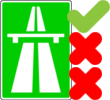Harry S. Truman (May 8, 1884 – December 26, 1972) was the 33rd president of the United States, serving from 1945 to 1953. A leader of the Democratic Party, he previously served as the 34th vice president from January to April 1945 under Franklin Roosevelt and as a United States senator from Missouri from 1935 to January 1945. Assuming the presidency after Roosevelt's death, Truman implemented the Marshall Plan to rebuild the economy of Western Europe and established both the Truman Doctrine and NATO to contain the expansion of Soviet communism. He proposed numerous liberal domestic reforms, but few were enacted by the Conservative Coalition which dominated the Congress. Truman grew up in Independence, Missouri, and during World War I fought in France as a captain in the Field Artillery. Returning home, he opened a haberdashery in Kansas City, Missouri, and was elected as a judge of Jackson County in 1922. Truman was elected to the United States Senate from Missouri in 1934. In 1940–1944 he gained national prominence as chairman of the Truman Committee, which was aimed at reducing waste and inefficiency in wartime contracts. Only after assuming the presidency was he informed about the atomic bomb. Truman authorized the first and only use of nuclear weapons in war against Hiroshima and Nagasaki in Japan. Truman's administration engaged in an internationalist foreign policy by working closely with British Prime Minister Clement Attlee. Truman staunchly denounced isolationism. He energized the New Deal coalition during the 1948 presidential election and won a surprise victory against Republican Thomas E. Dewey that secured his own presidential term. (Source: Wikipedia.org, CC BY-SA)



